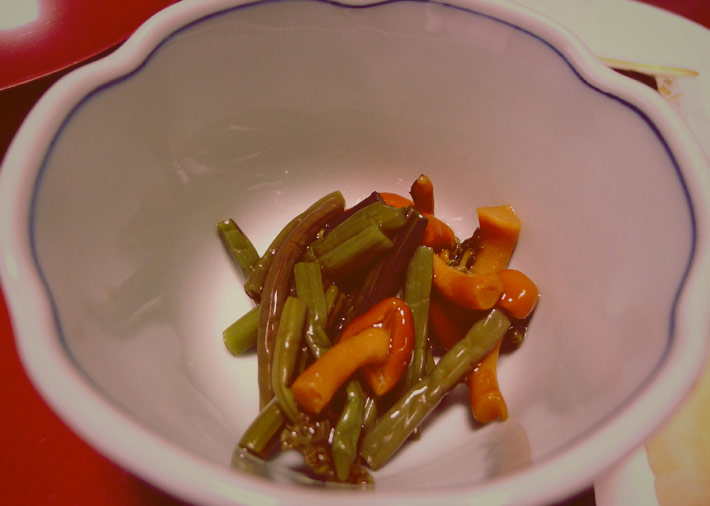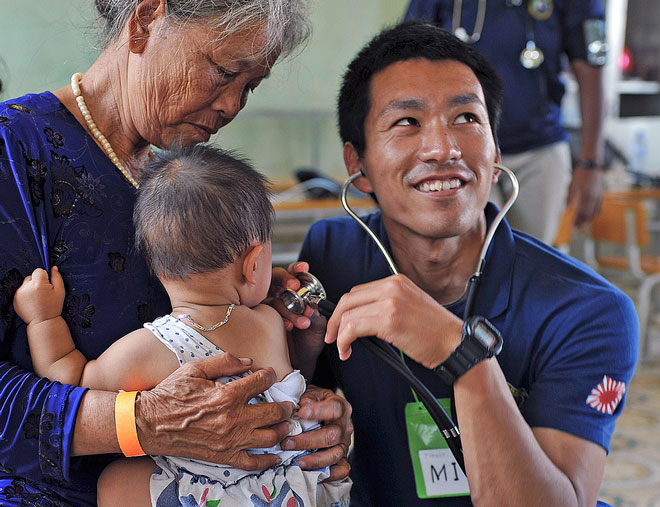There are lots of misconceptions when it comes to medicine and the human body — after all, even with all we know about medicine, we’re still discovering how the human body works.
It’s no surprise then that people still to this day rely on folk medicine and medical myths to understand the human body. People still seem to think that carrots improve your vision (they don’t), Robitussin cures all ailments (Chris Rock said so!), and an apple a day keeps the doctor away (they’ll help your teeth tho).
Japan has its fair share of medical myths, but do these myths have any basis in reality at all, or are they simply made up?
I thought in this post I could act as a kind of Japanese mythbuster — just think of me like a younger, more Asian Adam Savage. Kuu, our office cat, could be Jamie and I guess Koichi is Kari Byron? I didn’t think this through very far.
Needlessly complicated analogies aside, the Japanese myth I want to take a look at is the idea that the temperature of your stomach has a huge bearing on your overall general health. The Japanese are really, really concerned about the temperature of your stomach. If you’re feeling sick, it’s probably because your stomach is too cold.

You can see bits and pieces of this myth in Koichi’s post from earlier this week, where he talked about starting a vegetarian Buddhist diet. He quotes one Japanese chef about the different qualities of each food:
Summer vegetables from the melon family, such as tomatoes, eggplants and cucumbers, have a cooling effect on the body. Fall provides and abundant harvest of sweet potatoes, yams, pumpkins and fruit, which revive tired bodies after the heat of summer. In winter, a variety of root vegetables, such as daikon radish, turnip and lotus root, provide warmth and sustenance.
It’s not exactly that this idea of different foods giving different effects on the body is exactly unique to Japan, but I think it takes it beyond what a lot of us are used to. I mean sure, cucumbers are especially refreshing in the summertime, but I don’t know that I’d say that a food has a reviving effect on tired bodies or a warming effect unless the food is, y’know, warm.

The myth of the cold stomach doesn’t stop with the effects of various foods on your stomach. In the wintertime lots of people strap haramaki, little stomach warmers, onto themselves to keep their core nice and toasty. Beyond keeping you warm, haramaki supposedly have other benefits, like helping you process alcohol more quickly.
To some extent though, keeping the core warm isn’t really a foreign concept in the west. What is it that really makes this a uniquely Japanese myth?
The nail in the coffin for me is that even Japanese medical doctors seem to take this myth to heart and make diagnoses based on it. In one of our earlier posts, one commentor recalled how when he was sick in Japan, the doctors said the same thing:
My stomach was “too cold” because I drank chilled drinks. Mind you, this was August so I’m not sure how I was supposed to survive without regularly drinking cold liquids, but they were convinced this was the cause.
I tried to appease them, but a lifetime of drinking whatever I wanted without gastrointestinal distress convinced me they were full of it so I just stopped asking them what to do. Eventually my condition went away on its own.
It’s more than a little concerning when medical professionals seem to buy into a myth, but maybe it makes more sense if it were actually real.

Given all of the mythos about cold stomachs, is there any truth in there? Does consuming cold food and drink actually make your stomach colder and subsquently, make you sick?
In my very basic research, I couldn’t find any scientific research to support this claim. I read a lot of different anecdotal evidence and half-baked hypotheses, including an argument that colder substances sap energy from your body to warm them up.
Ultimately though, none of the stories or hypotheses were really backed up with any scientific studies or data. There definitely seemed to be a widespread cultural distrust of consuming cold things (I found one article in the New York Times about how much Russians hate ice cubes), but couldn’t come across any scientific basis for it.
I found one, kind of related topic; one radio show questioned whether cold or hot beverages were better for cooling you off in the summer. The expert they brought onto the show, a medical doctor and professor at the Indiana University School of Medicine, said that any differences in temperature once the drinks were consumed were more or less negligible.
Given all this lack of evidence, I think it’s pretty safe to say that eating or drinking something cold won’t have make you sick. If you have sensitive teeth, it might be a bit of a problem, or if you consume it too quickly, you might get brain freeze, but that seems to be about the extent of it.
